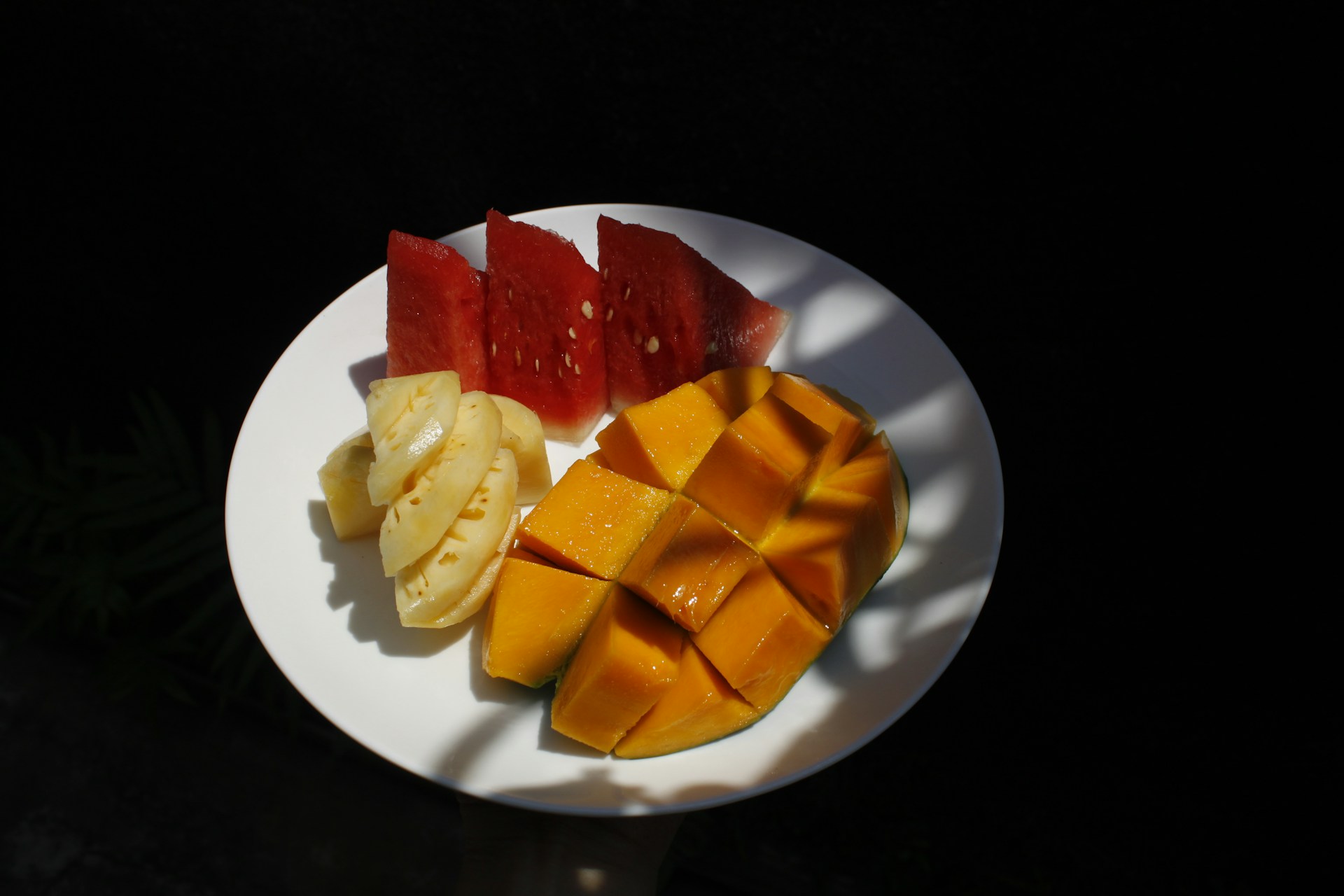Differences in Knowledge of Posyandu Cadres and Mothers of Toddlers Regarding Stunting and Its Association with Stunting Incidence in Toddlers
Perbedaan Pengetahuan Kader Posyandu dan Ibu Balita Terkait Stunting serta Hubungannya dengan Kejadian Stunting pada Balita

Downloads
Background: Stunting, a condition where children fail to grow adequately for their age, is a significant public health issue in Indonesia. Health cadres play a vital role role as sources of information and knowledge for mothers of toddlers to prevent stunting.
Objectives: To analyze differences in knowledge between Integrated Health Service Post (Posyandu) cadres and mothers of toddlers regarding stunting, and to examine the relationship between maternal knowledge of stunting and stunting incidence in children.
Methods: This study was conducted in Medan Maimun Subdistrict, Medan City, from June to July 2024, using a cross-sectional design. A total of 68 cadres and 79 mothers of toddlers participated as respondents. Data were collected using validated questionnaires and analyzed using univariate analysis, independent sample t-test to compare knowledge levels between groups, And Spearman’s test to assess the relationship between maternal knowledge of stunting and stunting incidence.
Results: Significant differences in stunting knowledge were found between health cadres and mothers of toddlers (p-value=0.003). Additionally, a significant relationship was observed between maternal knowledge of stunting and stunting incidence in children (p-value=0.034). Stunting incidence rates among children were 22.8% and 21.5%, respectively.
Conclusions: Enhancing education and training for mothers of toddlers is essential to prevent stunting. The study also recommends strengthening the role of health cadres in delivering stunting-related education within the community.
Kementerian Kesehatan Republik Indonesia. Profil kesehatan Indonesia 2020. Jakarta: Kementerian Kesehatan RI (2020).
Kementerian Kesehatan Republik Indonesia. Buku Kesehatan Ibu Dan Anak (KIA). (Kementerian Kesehatan RI. ISBN: 978-602-416-008-4., Jakarta, 2020).
Rosmalina, Y., Luciasari, E., Aditianti, A. & Ernawati, F. Upaya pencegahan dan penanggulangan batita stunting: systematic review. Gizi indonesia 41, 1–14 (2018). https://doi.org/10.36457/gizindo.v41i1.221
Kementerian Kesehatan Indonesia. Buku Saku Hasil Survei Kesehatan Indonesia (SKI) 2023. (Jakarta: Kementerian Kesehatan, 2023).
Pemko Medan. Dinilai Sukses Turunkan Stunting, Kota Medan Dijadikan Daerah Percontohan Penanganan Stunting. [Online] Available at: https://portal.pemkomedan.go.id/berita/dinilai-sukses-turunkan-stunting-kota-medan-dijadikan-daerah-percontohan-penanganan-stunting__read4449.html (Accessed: 13 September 2024) (2024).
Kementerian Kesehatan RI. Buku Saku Hasil Studi Status Gizi Indonesia (SSGI) Tingkat Nasional, Provinsi, Dan Kabupaten/Kota Tahun 2022. (2022).
Megawati, G. & Wiramihardja, S. Peningkatan kapasitas kader posyandu dalam mendeteksi dan mencegah stunting di desa cipacing jatinangor. Jurnal Aplikasi Ipteks Untuk Masyarakat 8, 154–159 (2019). https://doi.org/10.24198/dharmakarya.v8i3.20726
Novianti, R., Purnaweni, H. & Subowo, A. Peran Posyandu Untuk Menangani Stunting di Desa Medini Kecamatan Undaan Kabupaten Kudus. Journal of Public Policy and Management Review 10, 378–387 (2021). https://doi.org/10.14710/jppmr.v10i3.31425
Prihandini, Y. A. et al. Program Peningkatan Pengetahuan dan Keterampilan Kader Posyandu sebagai Upaya Pencegahan Stunting di Desa Sari Gadung Tanah Bumbu. Jurnal Kreativitas Pengabdian Kepada Masyarakat (PKM) 6, 4183–4190 (2023). https://doi.org/10.33024/jkpm.v6i10.12165
Megawati, G. & Wiramihardja, S. Peningkatan Kapasitas Kader Posyandu Dalam Mendeteksi Dan Mencegah Stunting. Dharmakarya: Jurnal Aplikasi Ipteks untuk Masyarakat 8, 154–159 (2019). https://doi.org/10.24198/dharmakarya.v8i3.20726
Hamdy, M. K. et al. Peran Kader Posyandu dalam Menurunkan Angka Stunting. Jurnal Ilmu Sosial Indonesia 87, 96 (2023). https://doi.org/10.15408/jisi.v4i2.37128
Setianingsih, S., Musyarofah, S., Livana, P. H. & Indrayati, N. Tingkat Pengetahuan Kader dalam Upaya Pencegahan Stunting. Jurnal Ilmu Keperawatan Jiwa 5, 447–454 (2022). https://journal.ppnijateng.org/index.php/jikj/article/view/1769
Rais, R., Aris, M., Mahendika, D., Supinganto, A. & Sarbiah, A. Hubungan Pengetahuan Kader Posyandu Dengan Kejadian Stunting Pada Balita 24-59 Bulan. Health Sciences Journal 7, 187–197 (2023). https://doi.org/10.24269/hsj.v7i2.2310
Putri, M. M. , M. W. , Y. H. , & K. F. Gambaran Pengetahuan Ibu Balita Tentang Stunting. Journal of Nursing Care 4, (2021).
Fikriya, A. & Mirwanti, R. Pengetahuan ibu terkait stunting pada balita: A literature review. Holistik Jurnal Kesehatan 18, 756–764 (2024). https://doi.org/10.33024/hjk.v18i6.375
Tadale, D. L., Ramadhan, K. & Nurfatimah, N. Peningkatan pengetahuan ibu balita terkait gizi seimbang balita untuk mencegah stunting melalui penyuluhan. Community Empowerment 6, 48–53 (2021). https://doi.org/10.31603/ce.4379
Sakinah, U., Ula, Z., Budiati, E., Sudasman, F. H. & Aini, A. Hubungan Pengetahuan, Sikap, Dan Penyakit Infeksi Dengan Kejadian Stunting Pada Balita Usia 24-59 Bulan. Jurnal Ners 7, 762–769 (2023). https://doi.org/10.31004/jn.v7i1.13179
Dahlan, M. S. Statistik Untuk Kedokteran Dan Kesehatan. . (Jakarta : Epidemiologi Indonesia, 2014).
Kementerian Kesehatan RepubIik Indonesia (Kemenkes RI). Peraturan Peraturan Menteri Kesehatan Republik Indonesia Nomor 2 Tahun 2020 Tentang Standar Antropometri Penilaian Status Gizi Anak. Keputusan Menteri Kesehatan Republik Indonesia. (Jakarta: Kementerian Kesehatan Republik Indonesia, 2020).
Khomsan A. Teknik Pengukuran Pengetahuan Gizi. (Institut Pertanian Bogor, Bogor (ID):, 2022).
Merten, N. et al. Better cognitive function in younger generations-Insights from two cohort studies of middle-aged to older adults in Wisconsin. Maturitas 162, 31–36 (2022). https://doi.org/10.1016/j.maturitas.2022.04.002
Manggala, A. K., Kenwa, K. W. M., Kenwa, M. M. L., Jaya, A. A. G. D. P. & Sawitri, A. A. S. Risk factors of stunting in children aged 24-59 months. Paediatr Indones 58, 205–212 (2018). https://doi.org/10.14238/pi58.5.2018.205-12
Rufaidah, D. Hubungan Tingkat Pengetahuan Kader Posyandu Dengan Kemampuan Deteksi Dini Stunting Di Desa Slateng Kabupaten Jember . Doctoral dissertation, Universitas dr. SoebandI (2022). https://doi.org/10.33024/jdk.v13i4.17788
Oka, I. A. & Annisa, N. Faktor-faktor yang mempengaruhi pengetahuan ibu menyusui tentang stunting pada baduta. Journal Fenomena Kesehatan 2, 317–334 (2019). https://ojs.ikbkjp.ac.id/JFK/article/view/108
Rahayu, A. & Khairiyati, L. Risiko pendidikan ibu terhadap kejadian stunting pada anak 6-23 bulan. (2014). https://doi.org/10.22435/pgm.v37i2.4016.129-136
Wu, Y. & Qi, D. The Effects of family income and parents’ educational status on child health status: Examining the mediation effects of material deprivation and parents’ health. J Fam Issues 43, 2255–2274 (2022). https://dx.doi.org/10.1177/0192513X211030733
Mawaddah, N., Adamy, A. & Ramadhaniah, R. Analisis Faktor-Faktor Yang Berhubungan Dengan Perilaku Pemberian Makanan Pendamping ASI (MP-ASI) Pada Balita> 6-23 Bulan Di Wilayah Kerja PUSKESMAS Pasi Mali Kabupaten Aceh Barat. Journal of Health and Medical Science 1–18 (2022). https://doi.org/10.51178/jhms.v2i1.986
Nuhan, M. V., Palalangan, D., Atok, Y. S. & Nenotek, C. R. The Influence of Balanced Nutrition Education on The Knowledge of Posyandu Cadres in Preventing Stunting. Jurnal Ners dan Kebidanan (Journal of Ners and Midwifery) 10, 398–404 (2023). https://doi.org/10.26699/jnk.v10i3.ART.p398-404
Choudhury, M., Badwaik, L. S., Borah, P. K., Sit, N. & Deka, S. C. Influence of bamboo shoot powder fortification on physico-chemical, textural and organoleptic characteristics of biscuits. J Food Sci Technol 52, 6742–6748 (2015). https://doi.org/10.1007/s13197-015-1709-3
Forh, G., Apprey, C. & Agyapong, N. A. F. Nutritional knowledge and practices of mothers/caregivers and its impact on the nutritional status of children 6–59 months in Sefwi Wiawso Municipality, Western-North Region, Ghana. Heliyon 8, (2022). https://doi.org/10.1016/j.heliyon.2022.e12330
Prasetyo, Y. B., Permatasari, P. & Susanti, H. D. The effect of mothers’ nutritional education and knowledge on children’s nutritional status: a systematic review. International Journal of Child Care and Education Policy 17, 11 (2023). https://doi.org/10.1186/s40723-023-00114-7
Shiroya-Wandabwa, M. et al. Coaching community health volunteers in integrated community case management improves the care of sick children under-5: Experience from Bondo, Kenya. Int J Integr Care 18, (2018). https://doi.org/10.5334/ijic.3971
Mediani, H. S., Hendrawati, S., Pahria, T., Mediawati, A. S. & Suryani, M. Factors affecting the knowledge and motivation of health cadres in stunting prevention among children in Indonesia. J Multidiscip Healthc 1069–1082 (2022). https://doi.org/10.2147/JMDH.S356736
Anwar, K. K. et al. The Effect of Cadre Assistance on The Knowledge and Attitudes of Mothers Regarding Breastfeeding, Complementary Feeding, and Monitoring Children’s Growth. Journal of Public Health and Development 22, 92–106 (2024). https://doi.org/10.55131/jphd/2024/220208
Widiansari, F. E., Anggryni, M., Tiwery, I. B. & Amalia, A. A. Keaktifan Kader Dalam Pencegahan Stunting Pada Anak Balita. (Penerbit NEM, 2023).
Nuâ, N. Promosi kesehatan: pendidikan kesehatan dengan metode ceramah mempengaruhi pengetahuan kader posyandu tentang status gizi balita. in Unissula Nursing Conference Call for Paper & National Conference vol. 1 96–102 (2017). http://dx.doi.org/10.26532/.v1i1.2899.g2122
Kusudaryati, D. P. D., Untari, I. & Prananingrum, R. Peningkatan pengetahuan kader posyandu tentang gizi balita melalui pemberian pendidikan dan buku gizi. URECOL 25–30 (2017).
Rehena, Z., Hukubun, M. & Nendissa, A. R. Pengaruh Edukasi Gizi terhadap Pengetahuan Ibu tentang Stunting di Desa Kamal Kabupaten Seram Bagian Barat. Moluccas Health Journal 2, (2020). https://doi.org/10.54639/mhj.v2i2.523
Henukh, D., Ahmad, S. N. A. J. & Pattypeilohy, A. The Relationship Between Maternal Weight Gain and Newborn Weight With the Frequency of Stunting in South Central Timor District (TTS). EMBRIO 13, 46–55 (2021). https://doi.org/10.36456/embrio.v13i1.3290
Falah, M., Sari, N. P. & Lismayanti, L. Stunting Knowledge among Mothers with Stunting Children in Tasikmalaya. HealthCare Nursing Journal 6, 1–4 (2024). https://doi.org/10.35568/healthcare.v6i1.3942
Hartati, S., Zuhroh, D. F. & Auparai, S. Mother’s knowledge and attitudes towards preventing stunting in their toddlers (1-5 years) in West Java Indonesia. Malahayati International Journal of Nursing and Health Science 7, 80–86 (2024). https://doi.org/10.33024/minh.v7i1.202
Siagian, E. & Ramschie, P. A. The Influence of Mother’s Knowledge of Toddler Nutrition on Their Knowledge and Attitudes Towards Stunting. Jurnal Berita Ilmu Keperawatan 17, 180–188 (2024). https://doi.org/10.23917/bik.v17i2.2835
Marlina, H., Warlenda, S. V. & Mulyani, I. S. Mother’s Knowledge, Diet and Nutritional Status in Stunted Toddlers. International Journal Of Social Science Humanity & Management Reseach 03, 112–8 (2024). https://doi.org/10.58806/ijsshmr.2024.v3i1n16
Nurhidayah, R., Sari, D. K., Kusumawati, P. D., Mardiyani, B. & Khusna, A. Parents’ Knowledge and Skills in Feeding, Children’s Response to Feeding on the Nutritional Status of Toddlers with Malnutrition Problems. Journal of Global Research in Public Health 8, 201–205 (2023). https://doi.org/10.30994/jgrph.v8i2.481
Putri, N. A. S., Adiwinoto, R. P., Arundani, P., Nugraheni, P. A. & Adnyana, I. M. D. M. The Relationship Between Feeding Patterns and Maternal Knowledge about Nutrition with the Incidence of Stunting in Children Age 0-5 Years in the Working Area of the Gedongan Health Center, Mojokerto City. AgriHealth: Journal of Agri-food, Nutrition and Public Health 5, 21–28 (2024). https://doi.org/10.20961/agrihealth.v5i1.83808
Wahyuningsih, M. & Liliana, A. Relationship Between Mothers Level of Knowledge About Stunting Prevention and the Nutritional Status of Toddler. Jurnal Keperawatan Respati Yogyakarta 11, 80–82 (2024). http://dx.doi.org/10.35842/jkry.v11i2.476
AL, J. P., Hasanuddin, I. & Sulaeman, S. Hubungan Pengetahuan Ibu Dengan Kejadian Stunting Pada Balita Umur 12-59 Bulan. Jurnal Kesehatan Panrita Husada 6, 75–85 (2021). https://doi.org/10.37362/jkph.v6i1.533
Aghadiati, F., Ardianto, O. & Wati, S. R. Hubungan Pengetahuan Ibu Terhadap Kejadian Stunting di Wilayah Kerja Puskesmas Suhaid. Journal of Healthcare Technology and Medicine 9, 130–137 (2023). https://doi.org/10.33143/jhtm.v9i1.2793
Syahputra, D., Yustina, I., Nurmaini, N., Rochadi, K. & Zuska, F. The Correlation Of Mother’s Knowledge And Mother’s Behavior In Stunting Prevention Efforts In Tuntungan Village 2 Deli Serdang Regency. International Journal Of Midwifery Research 3, (2023). https://doi.org/10.47710/ijmr.v3i1.48
Panigrahi, B., Panda, S., Mohanty, M., Satapathy, J. & Behera, J. R. Knowledge Attitude and Practice of Complementary Feeding among Mothers and Pattern of Growth in their Infants and Children. (2015). https://doi.org/10.21276/SSR-IIJLS.2024.10.1.24
Copyright (c) 2025 Amerta Nutrition

This work is licensed under a Creative Commons Attribution-ShareAlike 4.0 International License.
AMERTA NUTR by Unair is licensed under a Creative Commons Attribution-ShareAlike 4.0 International License.
1. The journal allows the author to hold the copyright of the article without restrictions.
2. The journal allows the author(s) to retain publishing rights without restrictions
3. The legal formal aspect of journal publication accessibility refers to Creative Commons Attribution Share-Alike (CC BY-SA).
4. The Creative Commons Attribution Share-Alike (CC BY-SA) license allows re-distribution and re-use of a licensed work on the conditions that the creator is appropriately credited and that any derivative work is made available under "the same, similar or a compatible license”. Other than the conditions mentioned above, the editorial board is not responsible for copyright violation.












































